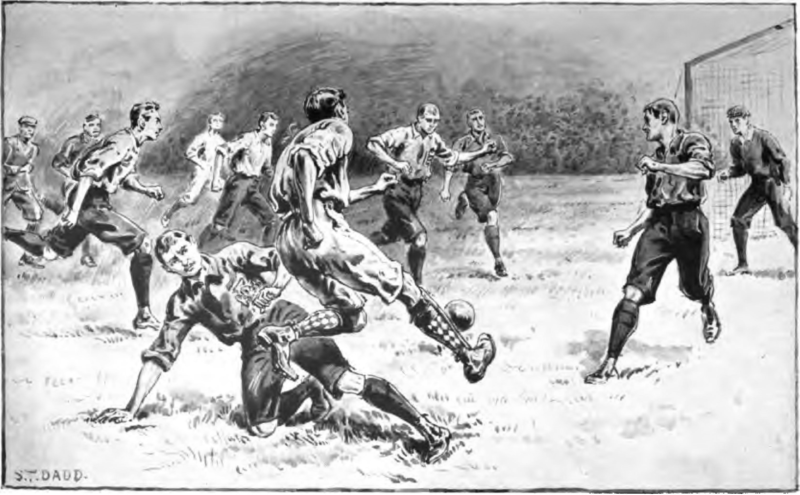CHAPTER VI.
THE CAPTAINCY.
If an eleven has confidence, and places implicit reliance in its captain, it has already one of the necessary elements of prosperity. As a rule, on much the same principle that a wicket-keeper, by the mere fact of his position, which gives him the best chance of observing the greater part of the field, is best placed to direct the field, it is better that the captain should be a defensive than an offensive player. He is placed much more advantageously than a forward to grasp the weak points of the enemy, while at the same time carefully disposing his own forces to the best possible purpose. The extent of a captain's fitness will be the amount of the power he wields. A competent commander naturally ensures a better system of organization and more ready obedience even among the less tractable members. In any case, though, a captain, whatever his merits for the position, should be an autocrat on the field. He is, or should be, responsible for the behaviour and decorum of his men, and his power while he is in charge of the side should be absolute. A team whose members do not support its chief, but question his actions at the smallest provocation, is altogether wanting in discipline, and lacks one of the great elements of success. To sum up the question of captaincy, the fitness for the position should be clearly established before the selection is made. When once chosen, however, his position should be recognized without demur, and his orders during the game, if a side is to work well and harmoniously, implicitly carried out.
Having dealt with the most important member of a football team, it will be necessary to consider, in the first place, the best measures for filling to the best advantage the various positions the players under his command will have to occupy, and secondly, the duties each will have to carry out to make the combination effective. For the better comprehension of these two matters, it will be most convenient, as well as, I think, more useful, to the beginner at all events, to subdivide the attack and the defence, with a view to a fuller explanation of the different responsibilities.
